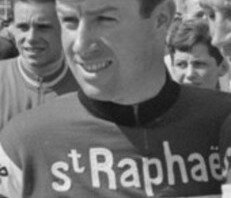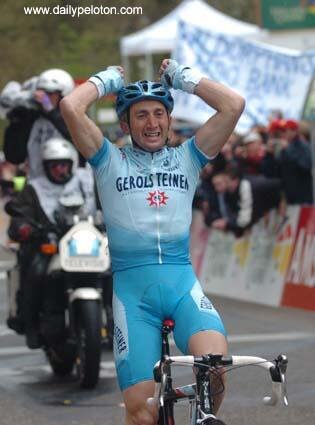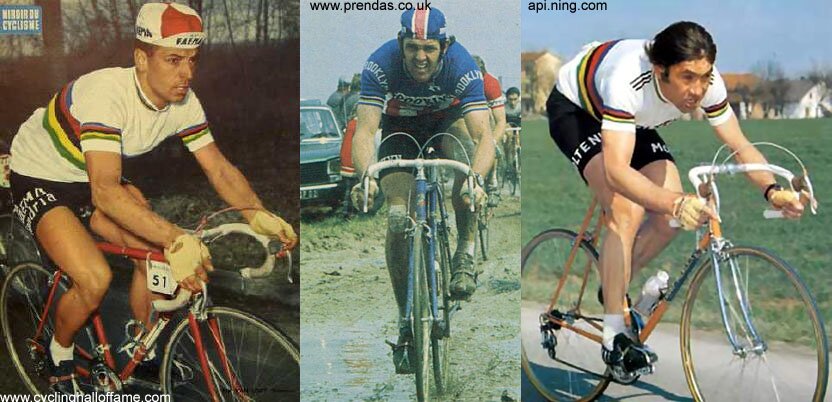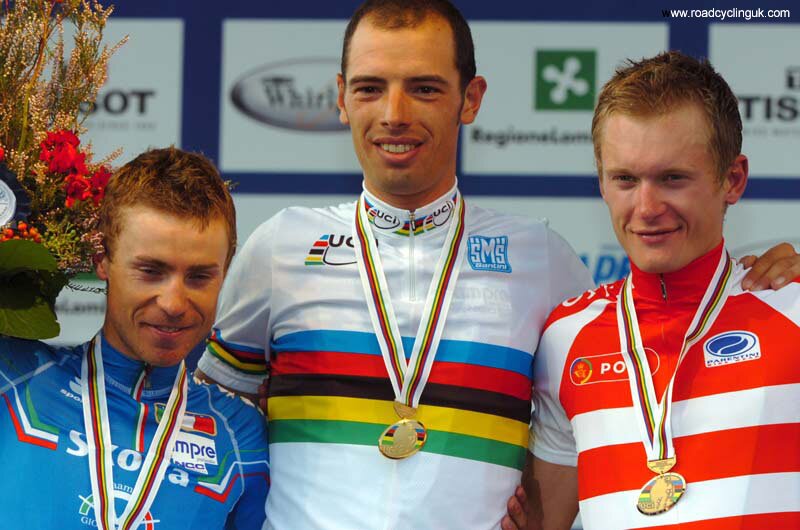September 16, 2009
The main contenders for the World Championships are all starting to call it a day in the Vuelta a España. This morning before Stage 17, the notable absentees from the start line included double stage winner Damiano Cunego and current World Champion Alessandro Ballan, the latter having now ridden his last race in the rainbow jersey, unless of course, he wins it again. The two Italians add their names to a long list of riders who’ve abandoned the Vuelta so far.
Alessandro Ballan and Damiano Cunego (along with Matti Breschel) on the podium of last year’s World Championship road race in Varese.
Riders expected to do well in the World Championships that are on that list include Fabien Cancellara, Oscar Freire, Tom Boonen, Sylvain Chavanel, Simon Gerrans and Pierrick Fédrigo. But the question I’ve been asking myself this morning is, does it actually benefit the rider to abandon with 5 or 6 stages left to ride. Perhaps, the rider would be better served finishing out the Spanish Grand Tour, keeping the body and the form ticking over? Ignoring the possibility of crashing and picking up an injury at top level racing, is it more beneficial for riders to complete the 21 stages of the Vuelta or to prepare alone over the final few days before the Worlds? Or perhaps avoiding the Vuelta altogether is a better option?
~ Continue reading ~
• • •





